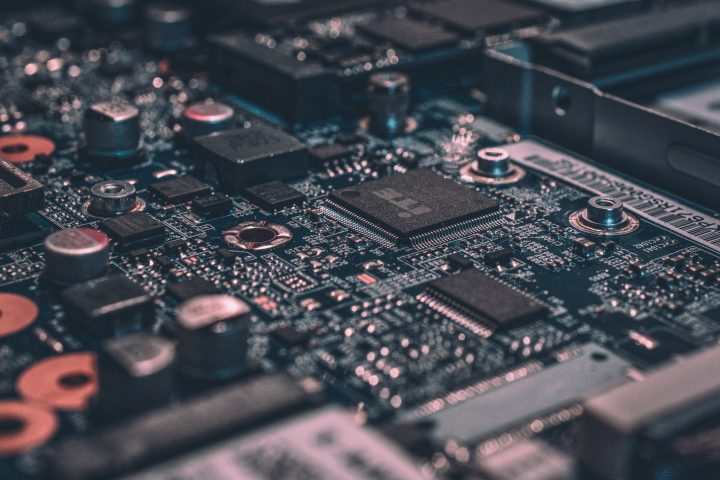- My wonder of technology
- But wait just a nanosecond
- What is tech doing to us socially?
- My ultimate fear of technology
- Is tech good or bad?
- A biblical overview of the original tech startups
- The abuse of technology brings oppression and death
- What should a Christian’s perspective be on tech?
- Nebuchadnezzar’s sobering reminder
- God’s intervention in tech
- Do I ultimately trust tech or God?
My wonder of technology
Never have I felt so much power to access and interact with the world at large, through the technology in the palm of my hand. I am in awe and wonder of the many benefits and conveniences technology, or tech, affords me. In fact, through this portal I can do or get almost anything I need or want.
I know for certain I am not the only one buying into and enjoying these benefits. When I look at the grand scheme of things, I see some mega trends. The Business Insider reports in 2017 alone, an estimated 3.7 trillion dollars was spent by businesses on tech. Big business knows that we are addicted to our tech and all it affords us.
I often feel inspired when I hear of scientific discoveries and tech breakthroughs. I can also identify how I have benefited greatly in my own life from the advanced tech that I can own and enjoy all its positive implications.
For example, my life is filled with knowledge, health, convenience, comfort, entertainment, material possessions, travel, exploration…the list goes on. My wonder at scientific discovery and applied tech is ever present.
To be honest, I can’t think of an area in my life where I am not in awe and wonder of tech’s benefits. In some ways I am tempted to buy into the notion that advancing tech is all I need. I am drawn to it, and tempted to put all my hopes for the future in technology.
When I listen to the likes of tech entrepreneur, investor, and engineer, Elon Musk, I am more in awe. His ideas are stretching the far reaches of my human imagination. They paint amazing visions of what we could do with technology for the good of humanity.
But wait just a nanosecond
Despite all these amazing imaginations, promising me utopia through technological advance, for all of the talk and promises of where future tech will take us, why do I find myself somewhat skeptical?
Why do I simultaneously feel uneasy about our increasingly dependent relationship to tech and its promises? After being absorbed in it for some time now, why do I have serious doubts about the ultimate outcome of technology’s power in human hands?
What is tech doing to us socially?
When I observe people in everyday life, I realize how screen time seems to be our default preoccupation. I remember moments when all the people around me were glued to their screens swiping, and not saying a word to anyone around them. I found those moments of awareness bizarre and sad. We were together physically, but apart socially.
I am no less immune to the draw of the screen. I also know of my own weakness–whenever there is a screen near me, I feel it’s mesmerizing power to draw me in. Even when I visit a webpage whose advertising uses images or especially videos, I get totally distracted. I most experience this all encompassing powerful draw when I go to a movie theatre.
While there, I am so immersed in the magnitude of the audio-visual experience, that I feel disoriented and dizzy when getting up to leave. I have trouble walking. I have trouble seeing in the dimly lit room. I find the transition into daylight abrupt.
I feel like I am walking through a portal into another world. I need to give myself time to acclimatize and calibrate. I feel as if I am tearing myself out of an imaginary world, one that often seems far more dramatic yet far more resolved and into reality, which is typically much less dramatic and yet with lesser resolution.
My ultimate fear of technology
But my greatest fear of technology stems from what I see, hear, and read about in human history. Sadly, it is a history filled with stories of oppression and violence, bolstered by the increasing capabilities of technology.
My intense fears surface when I am made aware of current human conflicts and their escalation. I see the prevalent use of weapons to exact human cruelty, violence, and the killing of human life. It dominates the headlines. It reminds me that, paired with selfish and twisted motivations, technology can be used for great evil.
What also terrifies me is the dabbling of science and technology in the realm of controversial moral choices. When some scientists use tech alone to define the boundaries of scientific research, they edit out any creator/designer, often disregarding any ethical and moral guidance for the opportunities technology makes possible.
Thus many scientists are using technology to manipulate or mix the DNA of plants, animals, and of most concern to me, humans. I don’t trust “transhumanism” has the ability to determine whether or not the outcomes of scientific manipulation or mixing of DNA actually benefit human life in the long term. I have more fears their scientific manipulation with DNA will only make the human condition worse.
Is tech good or bad?
And so at my core, I find myself in conflict with my competing perspectives on technology. I have to admit that until now, I have not seriously considered whether God has a perspective on technology and therefore never thought about how I could adopt it.
What does God reveal about technology? Is there a biblical precedent and perspective that can be a foundation for the way I view and interact with technology? Until recently, I didn’t think so. After listening to this talk by Tim Keller, I am being convinced otherwise.
A biblical overview of the original tech startups
In his talk, Keller starts by telling how God endorsed technology from the beginning. In Genesis, God created Adam and Eve to live in the garden of Eden and their first job was to cultivate and steward the earth. They were to be agrarian (Genesis 2:15).
Even in the perfect garden, God had them work the land to produce its best efficiency and bring maximum yield. For this they needed to develop tools and technology. Technology, in a perfect environment, was only meant for the flourishing of the environment and human life.
The abuse of technology brings oppression and death
In Genesis chapter three, we learn of how Adam and Eve were deceived and ate the forbidden fruit. As a result we witness the infectious evil that starts to influence human attitudes, motives, words, and actions. In the following chapter we read of how Cain killed Abel and we are disturbed.
Later in this chapter Moses offers us an insider’s look at the first advancements of technology. He writes of one descendant of Cain, Lamech, the first recorded man to marry two wives.
Lamech’s wife Adah gave birth to Jabal, the first great shepherd and father of those who live in tents and raise livestock. He developed an extensive understanding of the science behind breeding and caring for farm animals.
His brother’s name was Jubal; he was the father of all who played stringed instruments and pipes. Finally, we learn of Lamech’s son by his wife Zillah, Tubal Cain, who forged all kinds of tools out of bronze and iron.
Sadly, along with the advancement of technology, we witness Lamech’s increased rebellion against God. In his vengeance he justifies his violence and killing. Here Lamech actually boasts to his two wives that he killed a young man for slightly injuring him.
This Genesis story reminds me that technology is not the problem. It is our selfish human hearts–our motivations for the use of technology have been corrupted and become potentially more abusive. The problem is not technology itself, but our motives for its use.
Given our tendency to choose self-preservation and our will to power above God, others, or creation itself, we are prone to be corrupted by technology’s power and abuse others.
The problem is not technology itself, but our motives for its use.
The evils of the human heart gain more power and potential for destruction when combined with technology, namely greater oppression and the potential for mass death to humans. For me, the most vivid reminder of this is the Nazi’s use of superior technology in World War 2 to carry out their anti-semitic ideals.
History, including present day, reveals a long list of tyrants whose use of technology was guided by their systemic selfish and evil motives. Their selfish motivations leveraged technology to their advantage, thus oppressing and killing anyone who was a threat to them. So although technology can be of great benefit to humanity, it can also be used to destroy human life. Perhaps this explains my love and hate for technology.
But how do I unpack and understand my extreme fringe and conflicting beliefs about technology and adopt a more robust and healthy view and use?

What should a Christian’s perspective be on tech?
I need to acknowledge that my beliefs about tech and my use of it needs a moral source. My interaction with tech needs to be guided by the biblical narrative and its values. I don’t have to function on the fringes of attitude towards tech, either only demonizing technology, or thinking it has no bounds and that it can lead to utopia on earth.
Tim Keller rightly warns me that idolizing technology has always been a danger for us human beings. When God confronts the idol makers in the Old Testament, he in essence says, “You use your technology to craft an idol out of wood or stone or metal and then bow down to it and say “Save me! But didn’t you make it? Then how can it possibly save you?”
To our enlightened modern minds we say, “How ridiculous. That’s pretty stupid. Who would do that?” But don’t we do this? In our worst possible scenario, if we look to tech, the work of our hands, to save us, to do what only God can do, it will become a demon. It will run amok and backfire bringing human oppression and destruction.
At best, technology guided and motivated by faith, is only a tool that brings some degree of increased human flourishing, but it cannot ultimately bring eternal utopia on earth. That will only happen when Jesus establishes his eternal throne in Jerusalem.
If we look to tech, the work of our hands, to save us, to do what only God can do, it will become a demon.
Nebuchadnezzar’s sobering reminder
Keller reminded me of the sobering story of King Nebuchadnezzar of Babylon. In his prime he looked over his city and took pride in the science and technology of his time. He said,
“Is not this the great Babylon I have built as the royal residence, by my mighty power and for the glory of my majesty?”
Daniel 4:30 NIV
The most powerful, the golden head of all earthly kings (Daniel 2:24-49) was putting all his faith in his wealth and advanced technology: science, engineering, architecture, superior military and weapons, and horticulture (think of the hanging gardens of Babylon). But look at what God allowed. Nebuchadnezzar went mentally insane. Could it be that this is where our society is going?
“Even as the words were on his lips, a voice came from heaven, “This is what is decreed for you, King Nebuchadnezzar: Your royal authority has been taken from you. You will be driven away from people and will live with the wild animals; you will eat grass like the ox. Seven times will pass by for you until you acknowledge that the Most High is sovereign over all kingdoms on earth and gives them to anyone he wishes.”
Daniel 4:31-32 NIV
We modern people are tempted to worship the work of our hands, and look to our work (tech) to find significance and a sense of power. It comes from an inner emptiness within us. It entices us with the lie, that “In me (technology) you are significant.”
But God reminds me through the story of Nebuchadnezzar, that my identity is not achieved, but received. To think that I can make a name for myself by my accomplishments or dominating the world with the power technology affords me, is not a way to acquire an identity.
God reminds me through the story of Nebuchadnezzar, that my identity is not achieved, but received.
God’s intervention in tech
No matter how advanced, technology doesn’t have the power to make human attitudes, motives, thoughts, and actions pure. If anything, human history shows me that with the increase of technology’s power comes increased potential to corrupt and inflate any ego that takes advantage of its power–mine included.
Perhaps the wisdom of Peter Parker’s (AKA Spider Man) Uncle Ben is a good guidance for my relationship to technology. “With great power, comes great responsibility.” But here is my skepticism; If I can’t trust even my own heart, knowing I am not immune to using technology for my own greed or dominance, how can I hope to truly live it out, let alone trust a planet with billions of other humans subject to the same temptations?
I need more than ideals. I need God’s intervention to humble and help me. In history, God intervened and interfered with technological advance when it strayed towards evil. Think of how he brought the flood in the times of Noah or how he confused the building of the tower of Babel.
Why? He did it to restrain evil–evil bolstered by technological advance. Are you and I any different? Even though my selfish pride and my comfortable lifestyle resists any interference from God, I am learning why he allows pain, suffering, and death to plague my life, the opposite of what my ego wants.
Why? He allows these unwanted disturbances to keep me humble and reliant on himself. Especially when I suffer like Nebuchadnezzar from poor mental health, I am reminded that the striving for the luxurious and comfortable life is useless if I am disturbed mentally and spiritually.
Do I ultimately trust tech or God?
What is my hope for an ideal and long life on earth? Tech? Only to a degree. I am learning it is more important to ultimately trust in God, who both created and promises to restore the universe. Could this be the only power to keep me from being corrupted by the power of technology?
I think so.
When I accept God’s timely and wise intervention in my life, I can be patient with his plan to keep me humble by allowing my limitations and weaknesses. I don’t trust we humans, independent of God, can harness technology to bring immortality and utopia on earth.
I can still be thankful for the good technology affords me, but then acknowledge its limits. Technology cannot purify our conscience from selfish thoughts, motives, words, or actions. It can’t deliver us from evil and death, let alone promise an immortal and flourishing life.
Technology powerfully influences and benefits my life in many ways, but it is not God–it cannot give me abundant resurrection life. Ultimately, I can only trust the promise that God’s comprehensive knowledge, power, and goodness will resurrect the intricate details of my corrupted body, earth, and society I live in. Only his work can restore fully. I am growing to trust his promise.
I rest in the hope that God will one day resurrect the material universe, including us believers who place our faith in the death and resurrection of Jesus on our behalf. Let’s turn away from trusting our best technologies to ultimately save us. The eternal life Jesus offers is far superior to what any technological advances offer.
"*" indicates required fields
Share this!
About the Author




